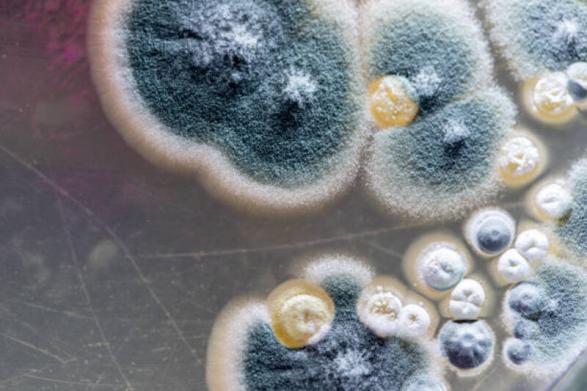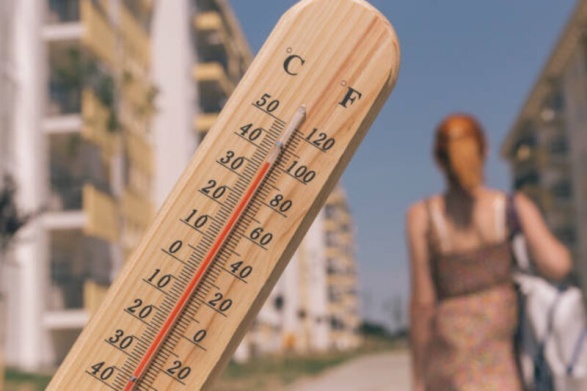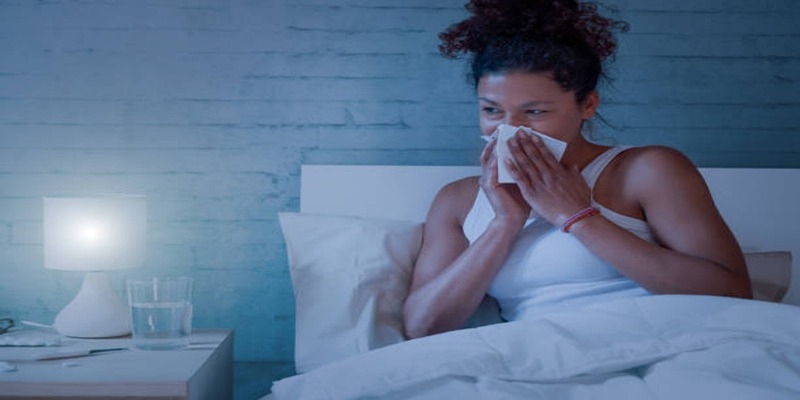Do you dread the nighttime because of allergies? Have sneezing fits, itchy eyes, and a runny nose kept you from getting good rest? If so, you're not alone! Millions of Americans suffer from seasonal and non-seasonal allergies that often show more severe symptoms after dark. To better understand why your allergic reactions can be amplified at night, let's take a look at ten common factors contributing to these woes. From allergens in the air to certain lifestyle choices causing inflammation, we'll discuss what might be aggravating your nighttime allergy flareups as well as how to prevent them going forward.
1. Pollen
As one of the most common outdoor allergens, pollen can cause a variety of reactions in allergy sufferers. Plants and trees release more pollen during the day when they are exposed to sunlight, however, these microscopic particles still linger in the air after dark. This means that even if you're inside your home before bedtime, you may be breathing in traces of pollen from outside. To avoid this, you can try to keep your windows closed during the night and switch on an air purifier if necessary.
2. Mold Spores

Mold spores are another type of allergen that thrive in humid environments and can cause a whole host of reactions in allergy sufferers. Unfortunately, as temperatures drop at night, moisture levels in the air tend to rise, making it easier for mold spores to linger. To reduce your exposure, try using a dehumidifier and make sure there are no visible water sources for mold to grow near you.
3. Dust Mites
Dust mites are microscopic creatures that live in bedding, carpets, and furniture. They can cause symptoms similar to pollen and mold, but are more likely to flare up in the evening when they have had all day to accumulate on surfaces around the home. To reduce your exposure, make sure you regularly wash your bedding and curtains as well as vacuum carpets and furniture frequently.
4. Pet Dander
If you own a furry pet, their dander may be making your nighttime symptoms worse. Pets tend to shed and produce more dander in the evening, which can cause reactions if it is inhaled. To reduce your exposure, keep pets out of your bedroom during the night and make sure they are groomed regularly.
5. Certain Foods
Certain foods can trigger allergic reactions in some people. Common triggers include dairy, wheat, eggs, and nuts. If you have noticed your symptoms worsening after eating certain foods during the evening, try to avoid them before bed or opt for less allergenic alternatives instead.
6. Pollution
Outdoor air pollution can also be a factor in nighttime allergies. Keep an eye on local air quality forecasts and try to stay indoors when levels are high, especially if you know that pollution tends to worsen your symptoms. This will help reduce your exposure and minimize your discomfort.
7. Stress
High levels of stress can also worsen your allergies. When we are under stress, our bodies release hormones that can increase inflammation and make us more sensitive to allergens. To reduce the effect of stress on your symptoms, try taking time for yourself each day and practice relaxation techniques like deep breathing or meditation.
8. Temperature

Extremely cold or hot temperatures can also worsen allergy symptoms. To reduce the risk of a flare up, avoid exposing yourself to drastic temperature changes during the evening and make sure your living space is kept at a comfortable temperature.
9. Sleep Quality
Poor sleep quality can also contribute to allergies. If you have trouble sleeping at night, try limiting your exposure to screens before bed and establish a regular sleep routine instead. Also, make sure that your bedroom is dark and free from allergens that could be preventing you from getting a good night's rest.
10. Humidity
Allergens like dust mites and mold thrive in high humidity environments. If your allergies tend to worsen at night, try running an air conditioner or dehumidifier in your home to reduce moisture levels and minimize your symptoms.
Conclusion:
Nighttime allergies can be a real nuisance, but with the right precautions, you can reduce their impact on your sleep and overall health. Consider using these tips to help you manage your symptoms and get a better night's rest. With the right diligence, you'll be able to enjoy allergy-free days soon.




